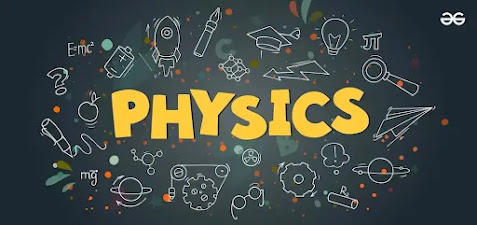Natural Science means.....?
What is Natural Science???
.jfif)
.jfif)
Biology is the natural science discipline that studies living things. The word Biology comes from the Greek term "bios" meaning life and "logos" meaning study. Hence it could be defined as the science of life and living organisms.

Physics is the branch of science that deals with the structure of matter and how the fundamental constituents of the universe interact. It studies objects ranging from the very small using quantum mechanics to the entire universe using general relativity. Physics is important because it is the foundation of science and technology, providing the principles and concepts that drive advancements in various fields such as information and communication technology, industrialization, and material development for the well-being of humanity
Chemistry
Chemistry is a branch of natural science that deals principally with the properties of substances, the changes they undergo, and the natural laws that describe these changes. It is a Qualitative and Quantitative nature.
.jfif)
Astronomy is the study of everything in the Universe beyond the Earth's atmosphere. That includes objects we can see with our naked eyes, like the Sun , the Moon , the planets, and the stars . It also includes objects we can only see with telescopes or other instruments, like faraway galaxies and tiny particles.It also includes objects we can only see with telescopes or other instruments, like faraway galaxies and tiny particles. And it even includes questions about things we can't see at all, like dark matter and dark energy
.jfif)
Natural science is one of the branches of science concerned with the description, understanding and prediction of natural phenomena, based on empirical evidence from observation and experimentation.[1] Mechanisms such as peer review and repeatability of findings are used to try to ensure the validity of scientific advances.
Natural science can be divided into two main branches:
1. life science and
2. physical science.
Life science is alternatively known as biology
Physical science is subdivided into branches:
- Physics,
- Chemistry,
- Earth science, and
- Astronomy
These branches of natural science may be further divided into more specialized branches (also known as fields).
.jfif)
As empirical sciences, natural sciences use tools from the formal sciences, such as mathematics and logic, converting information about nature into measurements which can be explained as clear statements of the "laws of nature" In natural science, impossibility assertions come to be widely accepted as overwhelmingly probable rather than considered proved to the point of being unchallengeable.
The basis for this strong acceptance is a combination of extensive evidence of something not occurring, combined with an underlying theory, very successful in making predictions, whose assumptions lead logically to the conclusion that something is impossible. While an impossibility assertion in natural science can never be absolutely proved, it could be refuted by the observation of a single counterexample. Such a counterexample would require that the assumptions underlying the theory that implied the impossibility be re-examined.
LIFE SCIENCE
Life science means science involving cells and their components, products and processes. Biology, medicine and agriculture are the most obvious examples of the discipline. However, in recent years, a convergence is underway that requires a multi-discipline approach. For example, biologists, chemists, and robotics and automation engineers will work together to develop new solutions.
Life science deals with living organisms like cells, anatomy and its evolution......
Biology
Biology is the natural science discipline that studies living things. The word Biology comes from the Greek term "bios" meaning life and "logos" meaning study. Hence it could be defined as the science of life and living organisms.
Biologists study humans, plants, animals and their environments. They research, identify, classify and study the different living organisms and their ecosystems.
Biology covers diverse fields of study, such as botany, ecology, marine biology and microbiology
Next moving on to Physical Science...
PHYSICAL SCIENCE
Physical science is the study of the inorganic world. That is, it does not study living things. (Those are studied in biological, or life, science.) The four main branches of physical science are astronomy, physics, chemistry, and the Earth sciences, which include meteorology and geology.
Physics

Physics is the branch of science that deals with the structure of matter and how the fundamental constituents of the universe interact. It studies objects ranging from the very small using quantum mechanics to the entire universe using general relativity.
Chemistry is a branch of natural science that deals principally with the properties of substances, the changes they undergo, and the natural laws that describe these changes. It is a Qualitative and Quantitative nature.
Chemicals are everywhere and are everything. Anything you can touch or smell or see contains one or more chemicals. Many occur naturally but some are man made.
It is a physical science within the natural sciences that studies the chemical elements that make up matter and compounds made of atoms, molecules and ions: their composition, structure, properties, behavior and the changes they undergo during reactions with other substances
Earth Science
.jfif)
Earth science is the study of the Earth's structure, properties, processes, and four and a half billion years of biotic evolution. Understanding these phenomena is essential to maintenance of life on the planet. The expanding world population demands more resources; faces increasing losses from natural hazards; and releases more pollutants to the air, water, and land.
Sustaining our existence requires scientific understanding of the natural materials and processes linking the geosphere, hydrosphere, atmosphere, and biosphere. Life prospers or fails at the surface of the Earth where these environments intersect.
Astronomy

.jfif)
.jfif)
.jpeg)

Comments
Post a Comment